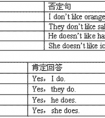单句改错1. -Would you like any mooncakes? -No, thanks. A B C D2. We have a lots of homework to do every day. ABCD3. Simon likes chocolates eggs very much.-七年级英语
The waitress has served twenty teas since four o’clock.从四点起,这位女服务员已上了二十份午茶。
Send two coffees and three lemonades to the room.请将两杯咖啡和三杯柠檬汁送到这个房间。
4.某些物质名词又是个体名词,它们的复数形式表示与原来个体完全不同的东西。这类词有:
glasses(眼镜、玻璃杯), irons(熨斗),coppers(铜币),papers(文章,
证件)等。例如:
She is always wearing glasses.她总是戴着眼镜。
He wrote many papers for the newspaper.他为这份报纸写过许多文章。
三、抽象名词的复效形式的含义
1.congratulations, regards, respects,thanks,wishes,apologies等复数形式用来
表示祝愿、礼貌和客气。例如:
It’s your birthday today.Congratulations!今天是你的生日,恭喜你!
You’ve given me so much help.Thanks a lot.你给了我很多帮助,非常感谢。
2.smiles, pities, fears, hopes, kindnesses复数形式表示强调。例如:
He was all smiles.他满脸笑容。
It is a thousand pities.非常遗憾。
I have received many kindnesses from him.他对我非常好。
Great fears are felt for the safety of the missing climbers.人们对失踪的登山者的安全权为担忧。
3.抽象名词具体化。有些抽象名词的复数形式表示具体的事物,如:
cares(烦人的事),anxieties(令人着急的事),worries(使人发愁的事),difficulties(难题),joys(使人高兴的事),failures(失败的事,失败的人),friendships(表示友谊的事例)等。例如:
After listening to his advice,she had no more anxieties.听了他的建议,她不再有发愁的事了。
His friendships never last very long.他与别人的交情从来都不长久。
After many failures,they finally succeeded.经过多次失败之后,他们最后成功了。
4.某些抽象名词在某种场合是个体名词,它们的复数形式表示与该个体名词不同的意义,如:
youths(男青年、小伙子), relations(亲属), beauties(美人),necessities(必需品)等。例如:
Twenty youths attended the meeting yesterday.二十个男青年出席了昨天的会议。
All his poor relations came to spend their holidays at his home.他所有的穷亲戚都在他家过节。
考点名称:不定代词
- 不定代词:
即不指明代替任何特定名词或形容词的代词。
初中常用不定代词有:
some(something,somebody,someone),any(anything,anybody,anyone), no(nothing,nobody,no one),
every(everything,everybody,everyone,),all,each,both,much,many,(a)little,(a)few,other(s),
another,none,one,either, neither等。一般来讲,修饰不定代词的词要置于其后。 不定代词用法例举:
①一般用于肯定句中的不定代词:some, someone, somebody, something
例如:They can speak some Japanese.
②一般用于否定句、疑问句和条件句中的不定代词:any, anyone, anybody, anything
例如:Is there anyone at home?
③一般用于句中表示否定意义的不定代词:no, no one, nobody, nothing
例如:I have no watch.
There is nothing wrong with the machine.
④不定代词one指代可数名词,既可指人,亦可指物,它可以代替上文中出现的单数可数
名词,指代复数名词时可以用ones。
例如:I do not have a pen, can you lend me one?
I like small cars better than large ones.
⑤none通常只用作名词,在句中作主语、宾语等。意为“没有任何(人或物)”,既可指人,亦可指物。
none后常跟of短语,其后用复数可数名词或不可数名词。
例如:None of them knows the answer to the question.
⑥both, all
both指两个人、物或群体;
all指三个以上的人、物或群体或泛指一切事物。
例如:My parents are both teachers.
All of my friends are football fans.
⑦every, each
each一般用于指两个或两个以上的人或物,侧重个别;
every用于指三个或三个以上的人或物,侧重全体。而且each所指对象在上下文中已十分明确。
例如:Each student went to see that films. (学生至少二人)
Every student went to the park.(学生至少三人)
⑧other, the other, others, the others, another
other具有名词和形容词性质,既可指人,亦可指物。other常与定冠词the连用。
不定冠词an与other连用则组成another。other只作形容词或代词,表示“其他的,别的”,不可单独使用。
例如:Do you have any other questions?
the other作形容词或代词,特指两者中或两部分的另一个或另一部分。
例如:The bookshop is on the other side of the street.
others相当于“other+名词”,泛指“别的人或物”,只有名词性用法。
例如:Some are planting trees, others are watering them.
the others相当于“the other+名词”,表示“剩下的,其余的”,特指除此之外的全部 人或物。
例如:There are forty-six students in our class. Two of them are foreign, the others are all Chinese.
another作形容词或代词,泛指三个或三个以上不定数目中的“另一个”。
例如:This pen is too expensive, please show me another.
⑨either, neither
either指“两者中的任何一个”;neither指“两者中无一”,具有否定意义。
例如:You can take either half.
Neither of the books is good.
⑩many, much, most
many和much具有名词和形容词的性质,都表示“许多、大量”。
Much一般只能指代或修饰不可数名词,many只能指代或修饰复数可数名词。Most指“大部分、大多数”。
例如:Many boys like playing soccer.
We have much homework to do every day.
Most students think so.
(11)few, a few, little, a little
a few 和a little 意为“少数、少量”,其意义是肯定的。
A few指代或修饰复数形式的可数名词,a little指代或修饰不可数名词。
Few 和little意为“几乎一点没有”,具有否定意义。
例如:He has a few friends here.
Hurry up! There is little time left.- 不定代词的用法:
不定代词大都可以代替名词和形容词,在句中作主语、宾语、表语、定语和状语。
位置
不定代词+形容词
不定代词+to do
作主语
Both of them are teachers.他们两人都是教师。
作宾语
I know nothing about this person.我对这个人一无所知。
作表语
This book is too much for a child.这本书对一个小孩来说太难了。
作定语
There is a little water in the glass.玻璃杯里有一些水。
作状语
I can't find my book anywhere.我在任何地方都不能找到我的书。
修饰不定代词的词,一般情况下要后置。
考点名称:形容词
- 形容词:
简称adj.或a,形容词用来修饰名词或代词,表示人或事物的性质、状态,和特征的程度好坏与否,形容词在句中作定语,表语,宾语补足语。
她是一个好学生,她学习努力。She is a good student, and she works hard.
这辆自行车很贵。This bike is expensive.
对不起,我现在很忙。I am sorry, I'm busy now.
你为这次会议做好准备了吗? Have you got everything ready for the meeting? - 形容词的语法功能:
一、作定语
He is the greatest writer alive.他是依然健在的伟大的作家。
Somewone else has done it.别人已经做了这事。
二、作补语
形容词做主语补足语和宾语补足语时,可以表示其现状、状态,也可以表示某一动作的结果,并常用在表示“认为,看待”的动词如believe,prove,consider等候。例如:
The news made her sad.这消息使他感到非常悲伤。
Don't marry young.不要早婚。
三、作状语
形容词或形容词短语可作状语,形容词作状语时,可以看作是“being+形容词”结构的省略,可表示时间、原因、条件、方式、强调或伴随状况等意义。例如:
Enthusiastic,they are co-operative.热心的时候他们是很合作的。
Rich or poor, young or old, we all have problems.不管是穷人还是富人,不管是年轻人还是老人,我们都有问题。
四、做表语
The ship was adrift on unknown seas.那艘船在陌生的海域漂流。
五、做主语
Old and young joined the discussion.
Rich or poor meant the same to him.作感叹语
Very good!Say it again.
Stupid!He must be crasy. 形容词的几个特殊用法:
most 同形容词连用而不用 the, 表示 " 极,很,非常, 十分"。
It's most dangerous to be here. 在这儿太危险。
- 最新内容
- 相关内容
- 网友推荐
- 图文推荐
| [家长教育] 孩子为什么会和父母感情疏离? (2019-07-14) |
| [教师分享] 给远方姐姐的一封信 (2018-11-07) |
| [教师分享] 伸缩门 (2018-11-07) |
| [教师分享] 回家乡 (2018-11-07) |
| [教师分享] 是风味也是人间 (2018-11-07) |
| [教师分享] 一句格言的启示 (2018-11-07) |
| [教师分享] 无规矩不成方圆 (2018-11-07) |
| [教师分享] 第十届全国教育名家论坛有感(二) (2018-11-07) |
| [教师分享] 贪玩的小狗 (2018-11-07) |
| [教师分享] 未命名文章 (2018-11-07) |



![He showed ______ in English last year. And he is ______ in English. [ ]A. interest, much interested B. interest, more interested C. interesting, much intere-九年级英语](http://www.00-edu.com/d/file/ks/4/2/bukeshumingci/2019-11-20/smalld20f93968df0b44b42c9ed33f1601c891574264013.jpg)

![—What would you like?— ______, please.[ ]A. Two bottle of water B. Two bottle of watersC. Two bottles of watersD. Two bottles of water-七年级英语](http://www.00-edu.com/d/file/ks/4/2/bukeshumingci/2019-11-20/smalle0cc3bee894611c3e5f894077c6e0d4b1574264462.gif)
